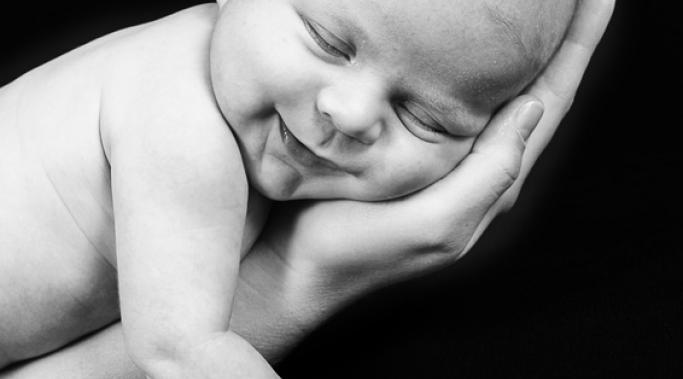When I think about depression I think of crushing sadness. I think of heavy, devastating sadness that will not move or shift for anything. I think of a sadness that penetrates your bones and makes life feel like it’s not worth living. I definitely identify sadness with depression.
But is depression really just profound sadness?
Depression – Breaking Bipolar
I’m a depressed person, or, if you like, I’m a person you suffers from depression. And, of course, I’m a person that writes and speaks about depression – a lot. So someone recently asked me, “Doesn’t talking about depression all the time make you more depressed?”
Well, it depends on your perspective.
Yesterday I gave a talk about bipolar disorder to a group of students in 11th grade for the Bipolar Disorder Society of British Columbia. I have given this talk many times and, in general, students love it. It might just be because they get out of math class for the day, or, possibly, I do a good job. Who can say?
We get feedback from every teen we give this talk to. After the talk, I review all the feedback and make sure there are no issues with it (such as a teen in immediate need to help). And yesterday, one of the feedback forms called me an ego-stroking b*tch.
And, I have to say, this never happens. The students are normally a very good audience and their feedback is usually quite genuine. Sometimes they have a comment on something they think can be improved, which is entirely legitimate, but never, has anyone called me a b*tch before.
Out of the class of 30, that was the only negative thing. But it’s the only thing I can think about. Between my bipolar obsessiveness and my depressive negativity, I seem to be solely focused on the negative.
There is a prolific (thoroughly annoying) commercial that talks about the physically painful symptoms of depression. It does this in order to sell you an antidepressant. And while I believe advertisers as much as I believe politicians, in this particular case, the advertisers have a point. Depression is physically painful. And severe depression can be severely physically painful. The Diagnostic and Statistical Manual of Mental Illness (DSM) doesn’t really take this into account but that doesn’t make it any less real.
My cat is 16 years old; that is 80 years old in human years. And while he could still be with us for years to come (hopefully), kitties, like humans, don’t live forever.
And, quite frankly, when he goes, I’m going to lose it. Lose all my marbles – bipolar or otherwise. He’s been with me longer than any human. He’s who I’ve come to home to for a decade and a half. His daily rhythms synch with mine (or mine with his, you know, because he’s the boss). He means a whole lot to me.
So I’m preparing for his death. I don’t know when it will happen, but one day, he just isn’t going to wake up.
Today I went and fed the seals. I fed the wild seals – not those in captivity – the best kind. They’re semi-tame seals as people feed them fish from the docks every day. They clap, and spin in circles, and splash, and jump to get the little frozen fish we offer. Their spotted coats gleam in the sun. Even the huge nails on their back flippers seem innocuous because they seem just so glad to see you.
So, I knelt and fed the seals fish. And I giggled, smiled and screamed like a little girl when one soaked the left leg of my jeans (Why Animals May Help With Depression). I was encased in a bubble where just the seals, the frozen fish and I existed.
And I completely forgot that I was depressed.
One of the things you shouldn’t say to someone with bipolar depression is, “just look on the bright side.” This includes saying things like, “at least you’re not starving to death,” or, “there are many people worse off than you,” or, “just think positively.”
We would all thank you to stop saying these things.
But if you are suffering from bipolar depression, does looking on the bright side help or, indeed, matter at all?
Last week, I discussed the basics of postpartum depression, postpartum psychosis and how these conditions are more common in women with bipolar disorder. Today I’ll talk about screening for postpartum depression and postpartum depression as well as their severe effects on the child and the treatment of these conditions.
Bipolar disorder has the simultaneous problem of being both underdiagnosed and overdiagnosed. While there’s little literature on overdiagnosis, what is clear is that the right people aren’t getting the right diagnosis all of the time. And while no one wants a false positive when diagnosing a mental illness, it’s also absolutely imperative that a diagnosis of bipolar disorder not be missed.
And unfortunately, all too often, bipolar disorder is misdiagnosed as Dr. Prakash Masand, CEO and Founder of Global Medical Education, says, "Missing the diagnosis of bipolar illness is all too common in clinical practice with devastating consequences for patients and families."
I have spent a great many years with this bipolar disorder thing. I have spent a great many years dealing with it. I have spent a great many years suffering with it. I have spent a great many years with medication unsuccessfully controlling it. I have spent a great many years in pain.
And when in an episode, for me it’s a depressive episode, I just want to know, “how many days until I get better? How many more days do I have to live in this agony?”









